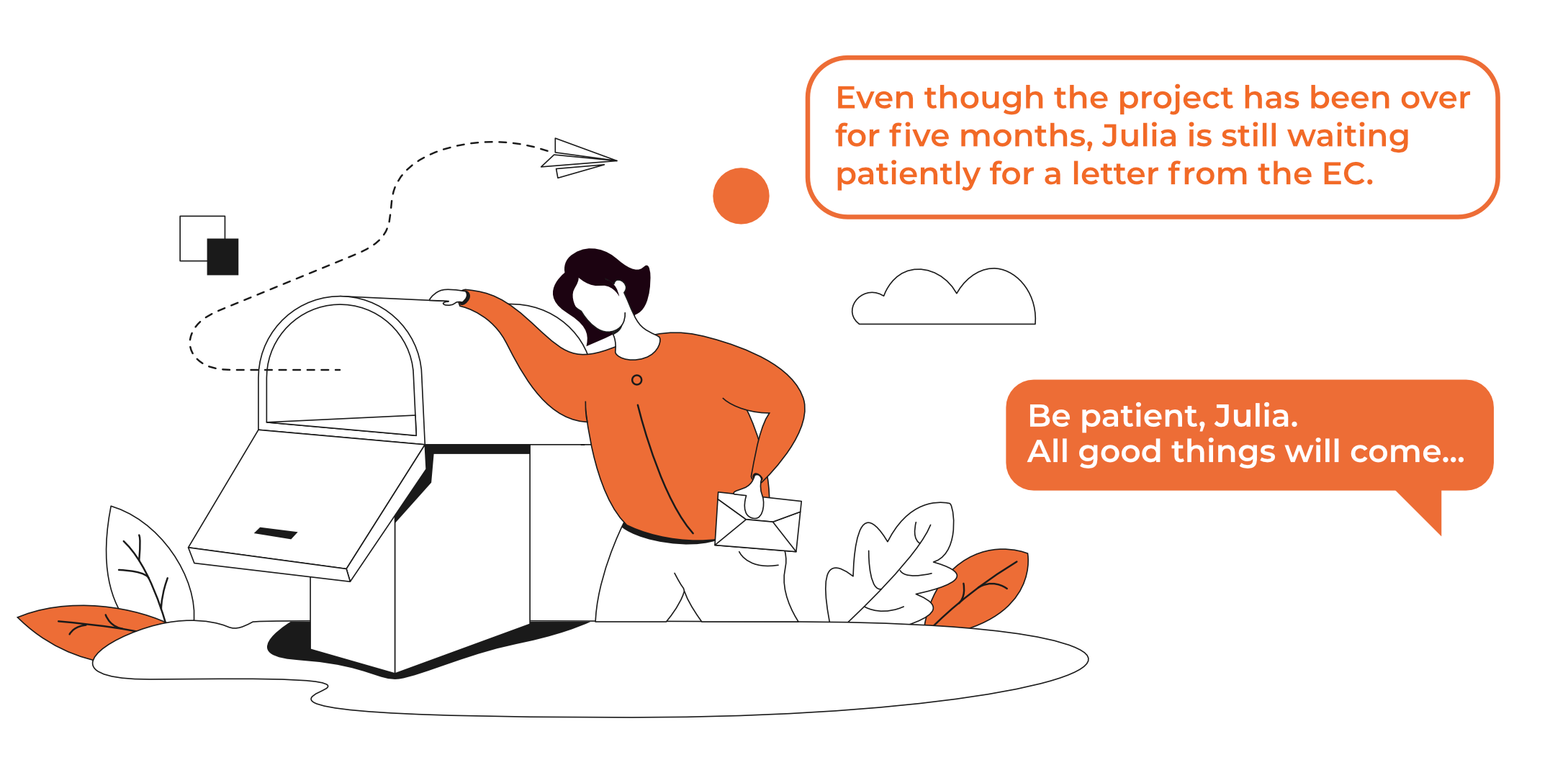
What you need to remember when your H2020 project is over
Congratulations! You have just received the last payment and successfully closed your H2020 project. Does this mean that you can forget the grant obligations? Not really. Certain provisions of your Grant Agreement continue after the project ends. Here are some tips for you.
Keep the project records
The first thing to note is that you must save records of your project. Article 18 of the Grant Agreement (GA) obliges you to keep the records for a period of up to 5 years after the last tranche (please consult the GA to check the specific period for your project). They should be verifiable and stored in the original versions, in the format in which they were received or created.
The reason for this is to be able to prove the correct project implementation and compliance with the obligations under the GA. In particular, you should be able to prove the eligibility of the declared costs, meaning you should save all the time records, contracts, invoices and other accounting evidence. Keep in mind that costs that are not supported by appropriate and sufficient evidence may still be rejected, and this may lead the EC to claim their recovery.
You must be prepared to make the records available upon request in case of further EC investigations.
Be ready for EC audit
The idea of the EC investigations is to verify proper project realisation and it may take different forms – Article 22 defines them as checks, reviews and audits.
Checks can be done at any moment in order to verify any aspect related to the grant. They are internal and their scope is usually limited (i.e. the EC asks for more information on a certain topic, such as explanation of work carried out or use of resources).
In case a more in-depth examination is required, the EC may start a review or an audit. These may be initiated up to 2 years after the balance payment and refer to risk-based analysed projects or just randomly selected beneficiaries. Reviews normally concern the technical implementation of the project (its scientific and technological implementation), while audits generally refer to the financial part. However, both may also cover other aspects of compliance under the GA obligations.
During the review or audit process you must provide all requested information and supporting documents, in the format and within the deadline specified. In case of on-the-spot investigations you must allow access to your premises. Moreover, you may be also requested to participate in related meetings.
The procedures will be recorded in a final report. If the results show ineligible costs, substantial errors or serious breach of GA obligations, it may lead to costs rejection, grant reduction or even recovery.
Exploit the results
Also keep in mind Article 28, which states that you must take measures to ensure exploitation of the project results, meaning turning them into concrete value for society. This obligation is to be undertaken within 4 years after the project end it simply means further development of your product or process. It can be done in a form of future commercialisation or further research to improve the project outcomes. If the obligation is not fulfilled, the EC forms a right to take ownership of your results.
Don’t forget to have a look at the Article 26 to read more on the ownership, especially in the context of the EC right (up to 4 years) to assume ownership of the results if they are not protected. In case you are considering transfer of results ownership or exclusive licence, please study Article 30 to see in which circumstances the EC may object it.
As you can see, certain obligations survive the completion of your project and must be respected for a specific period following its conclusion. So, don’t throw away the project records, welcome potential audit, and contact us if you need any help: hello@getpolite.eu